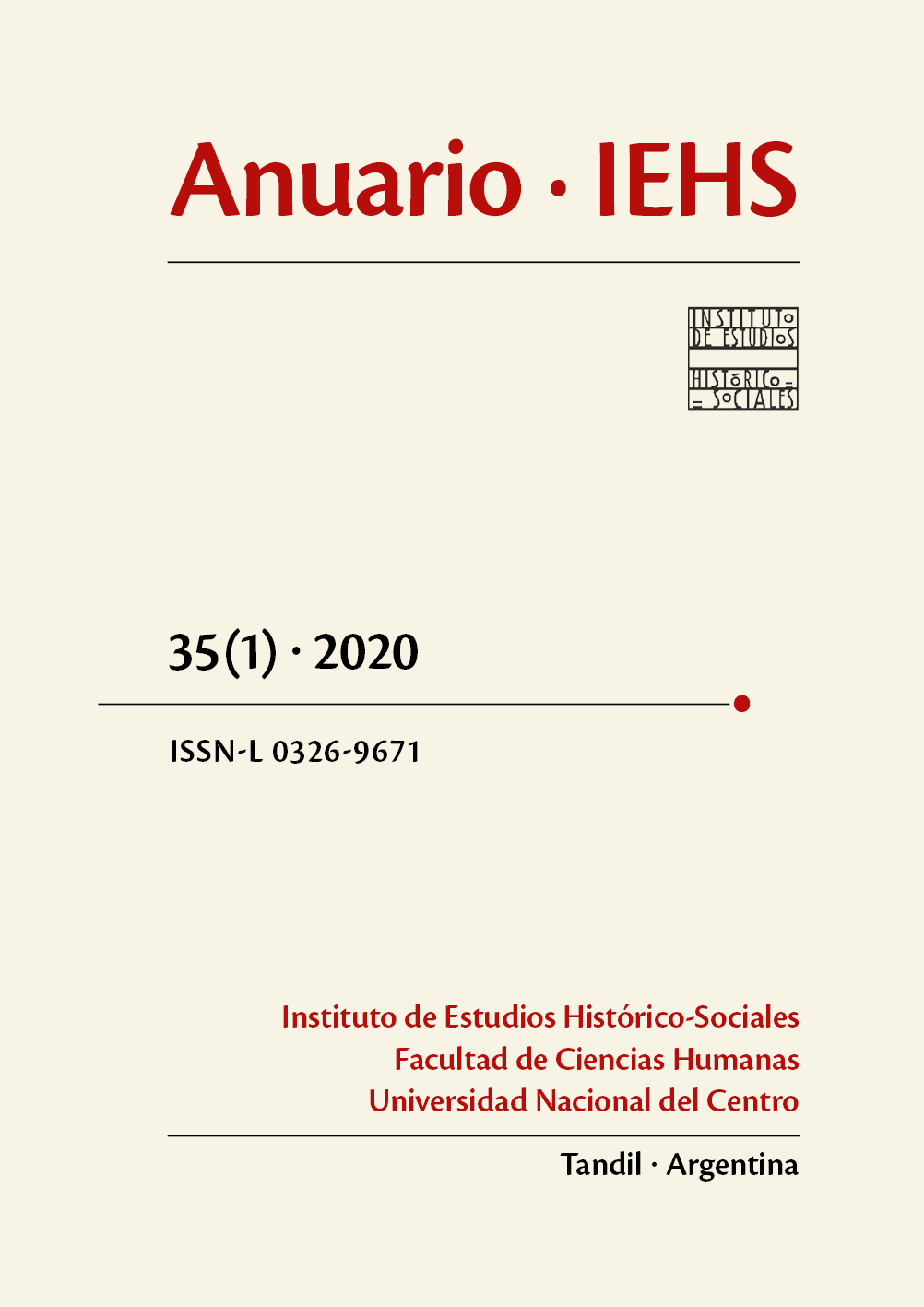Commons, institutional inequality and conflict in Montes de Toledo during the Early Modern Age
Keywords:
Commons, Conflicts on commons, Institutions, Forest HistoryAbstract
The commons evolution in Montes de Toledo during the Early Modern Age was determined by a hierarchical institutional framework. The Toledo City Council directed the use and control rights of most communal resources, while the village councils managed to achieve the pastures’ granting as a unique local common.
The inhabitants of Montes de Toledo, driven by population growth and the commercialisation process , came up against the restriction of uses by the city council. The result was a growing tension between institutions in which negotiated solutions were initially sought. In the 18th century, the development of charcoal supplies for Madrid unleashed a new conflict, in which Toledo managed to secure control of the income generated by common resources, excluding the village inhabitants who, now led by a wealthy peasant farmers’ minority, finally considered the commons privatisation.
References
DE KEYZER, M. 2013. The impact of different distributions of power on access rights to the common wastelands: the Campine, Brecklands and Geest compared, Journal of Institutional Economics, vol. 9, nº 4, pp. 517-542
DE MOOR, T. de, 2009. Avoiding tragedies: a Flemish common and its commoners under the pressure of social and economic change during the eighteenth century, Economic History Review, vol. 62, nº 1, pp. 1-22
DE MOOR, M., L. SHAW-TAYLOR y P. WARDE (eds.) 2002. The Management of Common Land in North West Europe, c. 1500-1850. Turnhout: Brepols.
DONÉZAR DÍEZ DE ULZURRUM, J. 1984. Riqueza y propiedad en la Castilla del Antiguo Régimen. La provincia de Toledo del siglo XVIII. Madrid: Instituto de Estudios Agrarios, Pesqueros y Alimentarios, 552 p.
GARCÍA SANZ, A., 1980. Bienes y derechos comunales y el proceso de su privatización en Castilla durante los siglos XVI y XVII: El caso de Tierras de Segovia, Hispania, vol. XL, pp. 95-127.
HERNANDO ORTEGO, J., 2013. La gestión forestal del abastecimiento de combustible a Madrid en la Edad Moderna, Cuadernos de la Sociedad Española de Ciencias Forestales, nº 38, pp. 57-63.
HERNANDO ORTEGO, J. y MADRAZO GARCÍA DE LOMANA, G., 2017. Firewood and Charcoal Consumption in Madrid during Eighteenth Century and Its Effects on Forest Landscapes. En E. VAZ et al. (eds.). Environment History in the Making. Springer, pp. 321-340.
HIRSCHMAN, A., 1977. Salida, voz y lealtad. México: Fondo de Cultura Económica.
IRIARTE GOÑI, I., 2002. Common lands in Spain, 1800-1995: Persistence, change and adaptation, Rural History, 13 (1), pp. 19-37.
IRIARTE GOÑI, I., 2009. Reflexiones en torno al conflicto ambiental: el caso de la Comunidad de Albarracín, Ager, nº 8, pp. 151-179.
IZQUIERDO MARTÍN. J., 2001. El Rostro de la Comunidad: La Identidad del Campesino en la Castilla del Antiguo Régimen. Madrid: Consejo Económico y Social Comunidad de Madrid.
LANA BERASAÍN, J. M., 2008. From equilibrium to equity. The survival of the commons in the Ebro basin: Navarra from the 15th to the 20th centuries, International Journal of the Commons, 2 (2), pp. 162-191.
LANA BERASAÍN, J. M., 2012. Forgotten commons. The struggle for recognition and property rights in a Spanish village, 1509-1957, Rural History, 23 (2), pp. 137-159.
LANA BERASAÍN, J. M., 2016. From privatisation to governed nature: Old and new approaches to rural commons in Spain», en N. Grüne et al. (eds.), Rural commons: Collective use of resources in the European agrarian economy, Innsbruck, Studien Verlag, pp. 12-26.
LEBLIC GARCÍA, V., 2000. Comarca de los Montes de Toledo. Cronología histórica. Toledo: Ediciones Toledo, 50 p.
LÓPEZ-SALAZAR PÉREZ, J., 1993. Los pleitos antiseñoriales en Castilla la Nueva. Tipología y factores de conflictividad. En E. SARASA SÁNCHEZ y E. SERRANO MARTÍN (Eds.), Señorío y feudalismo en la Península Ibérica. Zaragoza: Institución Fernando el Católico, vol. 2, pp. 389-418.
LÓPEZ-SALAZAR PÉREZ, J., 1996. Los conflictos por el aprovechamiento de los recursos forestales en el mundo señorial de la Corona de Castilla (Siglos XVI-XVIII). En S. CACACIOCCHI (Ed.), L’Uomo e la Foresta, secc. XIII-XVIII. Atti della “Ventsettesima Settimana di Studi”, 8-13 maggio 1995. Firenze: Le Monnier, pp. 665-695.
LORENTE TOLEDO, L., 1986. El dozavo sobre los Montes de Toledo, un derecho señorial en el marco liberal del Trienio (1820-1823), Cuadernos de Historia Moderna y Contemporánea, vol. VII, pp. 107-121.
LORENTE TOLEDO, L., 1989. Privilegios, Rentas y Derechos de la ciudad de Toledo en el Antiguo Régimen (1760-1833). Toledo.
LORENTE TOLEDO, L., 1990. Reforma agraria y señorío urbano en el liberalismo decimonónico. El movimiento campesino de los “Montes de Toledo”, Studia histórica. Historia contemporánea, nº 8, pp. 7-22.
MANGAS NAVAS, J. M., 1981. El régimen comunal agrario de los concejos de Castilla. Madrid: Servicio de Publicaciones Agrarias, 316 p.
MANGAS NAVAS, J. M., 2013. Génesis y evolución de los patrimonios territoriales públicos y comunitarios, Ambienta, nº 104, pp. 22-53.
MOLÉNAT, J. P., 1997. Campagnes et Monts de Tolède au XVe siècle. Madrid: Casa de Velázquez, 724 p.
OSTROM, E., 1990. Governing the Commons: The Evolution of Institutions for Collective Action. Cambridge: Cambridge University Press.
PALOMEQUE TORRES, A., 1972. El Fiel del Juzgado de los Propios y Montes de la ciudad de Toledo, Cuadernos de Historia de España, vol. LV-LVI, pp. 322-399.
SANTALOYA HEREDERO, L., 1991. Una ciudad del Antiguo Régimen: Toledo en el siglo XVIII (Personas, Propiedad y Administración). Madrid: UNED, 392 p.
SCHLAGER, E. y E. OSTROM, 1992. Property-Rights Regimes and Natural Resources: A conceptual Analysis, Land Economics, nº 8, pp. 249-262.
SOTO FERNÁNDEZ, D., A. HERRERA GONZÁLEZ DE MOLINA, M. GONZÁLEZ DE MOLINA y A. ORTEGA SANTOS, 2007. La protesta campesina como protesta ambiental,
siglos XVIII-XX, Historia Agraria, 42, pp. 277-302.
WEISSER, M., 1972. The peasants of the Montes: the roots of rural rebellion in Spain. Chicago: University of Chicago Press, 143 p.



